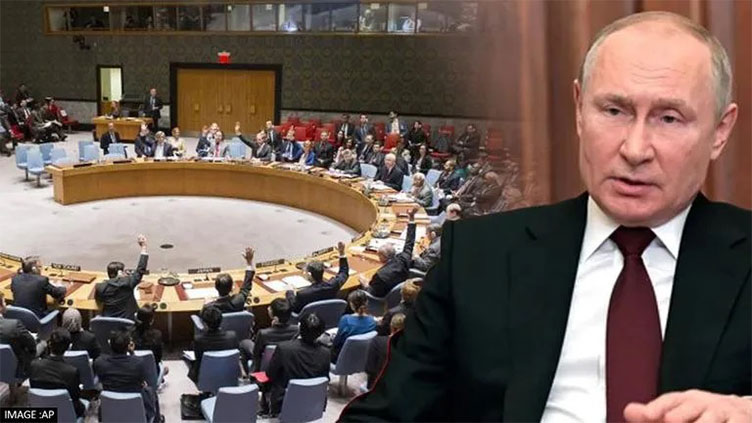UN to debate move to limit veto power of Security Council permanent members

World
Moscow's veto power has allowed it to paralyze action in the Security Council.
UNITED NATIONS (AFP) - Liechtenstein is to convene the UN General Assembly on Tuesday to debate a draft resolution -- backed by Washington -- requiring the five permanent members of the Security Council to justify their use of the veto.
An old idea aimed at making Security Council permanent members cut back use of their veto powers, it has been revived by Russia s recent invasion of Ukraine.
Moscow s veto power has allowed it to paralyze action in the Security Council, which is supposed to intervene in such conflicts as guarantor of global peace, as defined by the Charter of the United Nations.
The Liechtenstein proposal, co-sponsored by some 50 countries including the United States but, significantly, none of the other four permanent members of the Security Council -- Russia, China, France and Britain -- should be the subject of an upcoming vote, according to diplomats.
The Security Council also has 10 non-permanent members, who do not have the right of veto.
The proposal text, obtained by AFP, provides for a convocation of the 193 members of the General Assembly "within 10 working days of the casting of a veto by one or more permanent members of the Security Council, to hold a debate on the situation as to which the veto was cast."
- 295 vetos since 1946 -
Among the co-sponsors who have committed to voting for the text are Ukraine, Japan and Germany, the latter two hoping for seats as permanent members in a possibly enlarged Security Council in view of their global political and economic influence.
The positions of India, Brazil or South Africa, and other contenders for a potential permanent seat have not yet been revealed.
Even if it does not sponsor the text, France will vote in favor, according to one diplomat.
How Britain, China and Russia, whose backing would be critical to such a controversial initiative, will vote is not clear.
Since the first veto ever used -- by the Soviet Union in 1946 -- Moscow has deployed it 143 times, far ahead of the United States (86 times), Britain (30 times) or China and France (18 times each).
"We are particularly concerned by Russia s shameful pattern of abusing its veto privilege over the past two decades," said the US ambassador to the UN, Linda Thomas-Greenfield, in a statement.
The adoption of the Liechtenstein resolution "will be a significant step toward the accountability, transparency, and responsibility of all" the permanent members of the Security Council, she added.
France, which last used the veto in 1989, proposed in 2013 that the permanent members collectively and voluntarily limit their use of the veto in the event of a mass atrocity.
Co-sponsored by Mexico and supported by 100 countries, the proposal has so far stalled.

